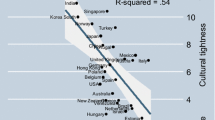Abstract
The ethnic-Chinese business is often characterised by a central role of the family both in the structure of the firm and in its corporate culture. This has political, social as well as cultural reasons. The centrality of the family in business has its advantages and disadvantages. On the one hand, it enables a fast, efficient and flexible process of decision-making. On the other hand, it often contradicts modern business professionalism. The younger generation of ethnic-Chinese business actors tend to preserve crucial elements of such family-centred characteristics. Yet, globalisation drives them to transform their business style, lessening its dependence on family resources and adopting more-modern professional ideas. Changes in current political situation, religious-cultural trend, demography and education contribute to making possible the transformation.
Similar content being viewed by others
References
Backman M. 1999 Asian Eclipse: Exposing the Dark Side of Business in Asia. Singapore, etc: John Wiley & Son (Asia)
Braadbart O. 1995 Sources of Ethnic Advantage: A Comparison of Chinese and pribumi-managed Engineering Firms in Indonesia. in Brown, R. A. (ed.), Chinese Business Enterprise in Asia. London: Routledge
Brown C. 1998 ‚Overseas Chinese’ Business in Southeast Asia in Sheridan, K. (ed.), Emerging Economic Systems in Asia: A Political and Economic Survey. St. Leonard: Allen and Unwin
Crawford D. (2000) Chinese Capitalism: Cultures, the Southeast Asian Region and Economic Globalisation. Third World Quarterly 21(1): 69–86
Fukuyama F. 1995, Trust: The Social Virtues and the Creation of Prosperity. London: Hamish Hamilton
Haley G. T., Tan C. T., Haley U. C. V. 1998, New Asian Emperors: The Overseas Chinese, Their Strategies and Competitive Advantages. Oxford, etc: Butterworth-Heinemann
Hodder R. 1996, Merchant Princess of the East: Cultural Delusions, Economic Success and the Overseas Chinese in Southeast Asia. Chichester: John Wiley & Sons
Jones G., Rose M. B. 1993, Family capitalism. Business History 35(4): 1–16
Kompas, 22/05/2004
Kuo E. C. Y. 1986 Confucianism and the Family in an Urban-industrial Society. in Slote, W. (ed.), The Psycho-Cultural Dynamics of the Confucian Family: Past and Present. Seoul: International Cultural Society of Korea
Lee J. Y., 1996, The Trinity in Asian Perspective. Nashville: Abingdon Press
Lim L. Y. C. 1992 The Emergence of a Chinese Economic Zone in Asia? Journal of Southeast Asia Business 8(1): 41–46
Lim L. Y. C. 2000 Southeast Asian Chinese Business: Past Success, Recent Crisis and Future Evolution. Journal of Asian Business 16(1): 1–14
Landa J. T. 1983 The Political Economy of the Ethnically Homogeneous Chinese Middleman Group in Southeast Asia: Ethnicity and Entrepreneurship in a Plural Society. in Lim, L. Y. C., Gosling L. A. P. (eds.), The Chinese in Southeast Asia, vol 1: Ethnicity and Economic Activity. Singapore: Maruzen Asia, pp. 89–104
Mackie J., 1998 Business Success Among Southeast Asian Chinese: The Role of Culture, Values, and Social Structures. in Hefner, R. W. (ed.), Market Cultures: Society and Morality in the New Asian Capitalisms. Boulder: Westview Press
Prior A., Kirby M 1993 The Society of Friends and the Family Firm, 1700–1830. Business History 35(4): 66–85
Pyper H. 1996 The Family in the Biblical Tradition. in Pyper, H. (ed.), The Christian Family: A Concept in Crisis. Norwich: The Canterbury Press
Redding S. G. 1993 The Spirit of Chinese Capitalism. Berlin:Walter de Gruyter
Schwarz A. 1994 A Nation in Waiting: Indonesia in 1990s. St Leonard: Allen & Unwin
Suryadinata L. 2002, Negara dan Etnis Tionghoa: Kasus Indonesia. Jakarta: LP3ES
Tan E. K.-B. 2000 Success Amidst Prejudice: Guanxi Networks in Chinese Businesses in Indonesia and Malaysia. Journal of Asian Business 16(1): 65–77
Weidenbaum M. 1996 The Chinese family business enterprise. California Management Review 38(4): 141–155
Wong S.-L. 1995 Business Network, Cultural Values and the State in Hong Kong and Singapore. in Brown, R. A. (ed.), Chinese Business Enterprise in Asia. London: Routledge
Yen C.-H. 1995 Studies in Modern Overseas Chinese History. Singapore:Times Academic Press
Yeung H. W.-C. 2000 Strategic Control and Coordination in Chinese Business Firms. Journal of Asian Business 16(1): 95–120
Zhang W.-B. 1999, Confucianism and Modernization: Industrialization and Democratization of the Confucian Regions. London: MacMillan Press
Author information
Authors and Affiliations
Corresponding author
Rights and permissions
About this article
Cite this article
Wijaya, Y. The Prospect of Familism in the Global Era: A Study on the Recent Development of the Ethnic-Chinese Business, with Particular Attention to the Indonesian Context. J Bus Ethics 79, 311–317 (2008). https://doi.org/10.1007/s10551-007-9399-z
Received:
Accepted:
Published:
Issue Date:
DOI: https://doi.org/10.1007/s10551-007-9399-z




